Book Signings
The following books will be featured during exhibit hall hours throughout the conference. Publishers will be on hand to sell books to those who wish for copies prior to signing.
April 4, 12:30 p.m. – 1:30 p.m.
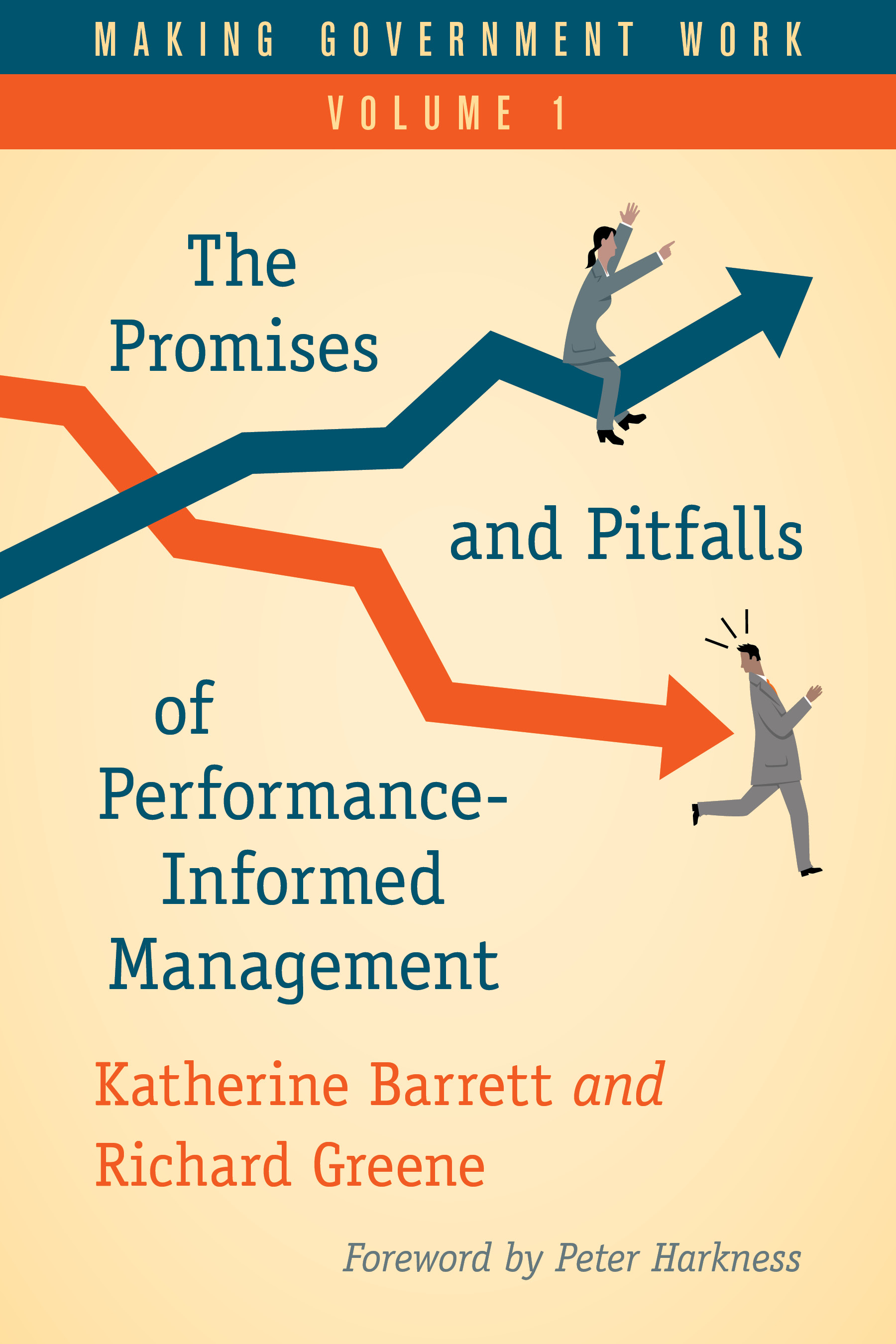
Making Government Work: The Promises and Pitfalls of Performance-Informed Management
By Katherine Barrett and Richard Greene
As performance management has evolved, it has encompassed many different tools and approaches including measurement, data analysis, evidence-based management, process improvement, research and evaluation. In the past, many of the efforts to improve performance in government have been fragmented, separated into silos and labeled with a variety of different names including performance-based budgeting, performance-informed management, managing for results and so on.
Making Government Work: The Promises and Pitfalls of Performance-Informed Management by Katherine Barrett and Rich Greene is loaded with dozens of stories of what practitioners are doing currently, what’s working and what’s not. The benefits are ample, so are the challenges. This book describes both, along with practical steps taken by practitioners to make government work better. Performance management has been in a state of evolution for decades now and Barrett and Greene have endeavored to capture the state of the world as it is today. By detailing the challenges and conquests, the authors ensure readers will find the kind of balanced information that is helpful to both academics and practitioners—and that can move the field forward.
Join us for this signing after you hear more about the book during our
Saturday morning Presidential Panel, Making Government Work.
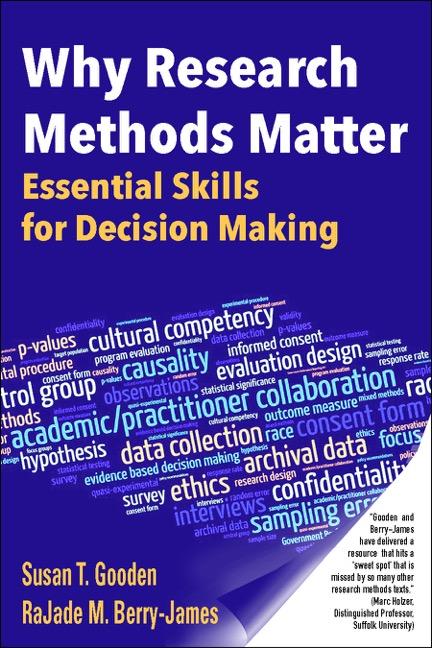
Why Research Methods Matter; Essential Skills for Decisionmaking
By Susan Gooden and RaJade Berry-James
Why Research Methods Matter; Essential Skills for Decisionmaking provides practical applications of why research methods are important for public administrators, who do not routinely perform data analysis, but often find themselves having to evaluate and make important programmatic and budgetary decisions based on data analysis and evaluative reports they receive. It is also intended as a supplemental text for research methods courses at the graduate-level and upper division undergraduate level. The primary audience is current and future managers in the public sector who seek to become savvy consumers of research.
April 4, 3:00 p.m. – 4:00 p.m.

Global Corruption and Ethics Management: Transforming Theory into Action
By Carole Jurkiewicz
This book advances the study and practice of ethics management through seminal analyses of the who/how/why/when/and where of corruption. In accessible and direct language, 30 scholars and experts from across the globe translate robust theory into actionable programs and policies.
Global Corruption and Ethics Management: Transforming Theory into Action is focused on integrating research from a diverse array of scholars and translating it into proactive skills; the empirical content is presented in clusters of short chapters, each followed by a synopsis of skills for implementation based upon this new knowledge. The scope of the content encompasses the work of top scholars and experienced professionals to strategically outline the mercurial nature of corruption; its causes, the systems and practices that facilitate it; its short- and long-term consequences; new measures for assessing and diagnosing remedies; and steps that can be taken to prevent it. Scholars and students can use it as a jumping-off point for further research and practitioners can immediately expand their repertoire of tools in preventing and fighting corruption through implementing the skills synopses. Further, incorporating digital media resources such as a companion website offering links to measurements and assessments, and accessible instructors’ tools, will dramatically shift the benchmark for studying and implementing Global Corruption and Ethics Management; there is no other book on corruption and ethics management with the empirical gravitas, variety of application tools and this level of accessibility.
April 5, 11:30 a.m. – 12:30 p.m.
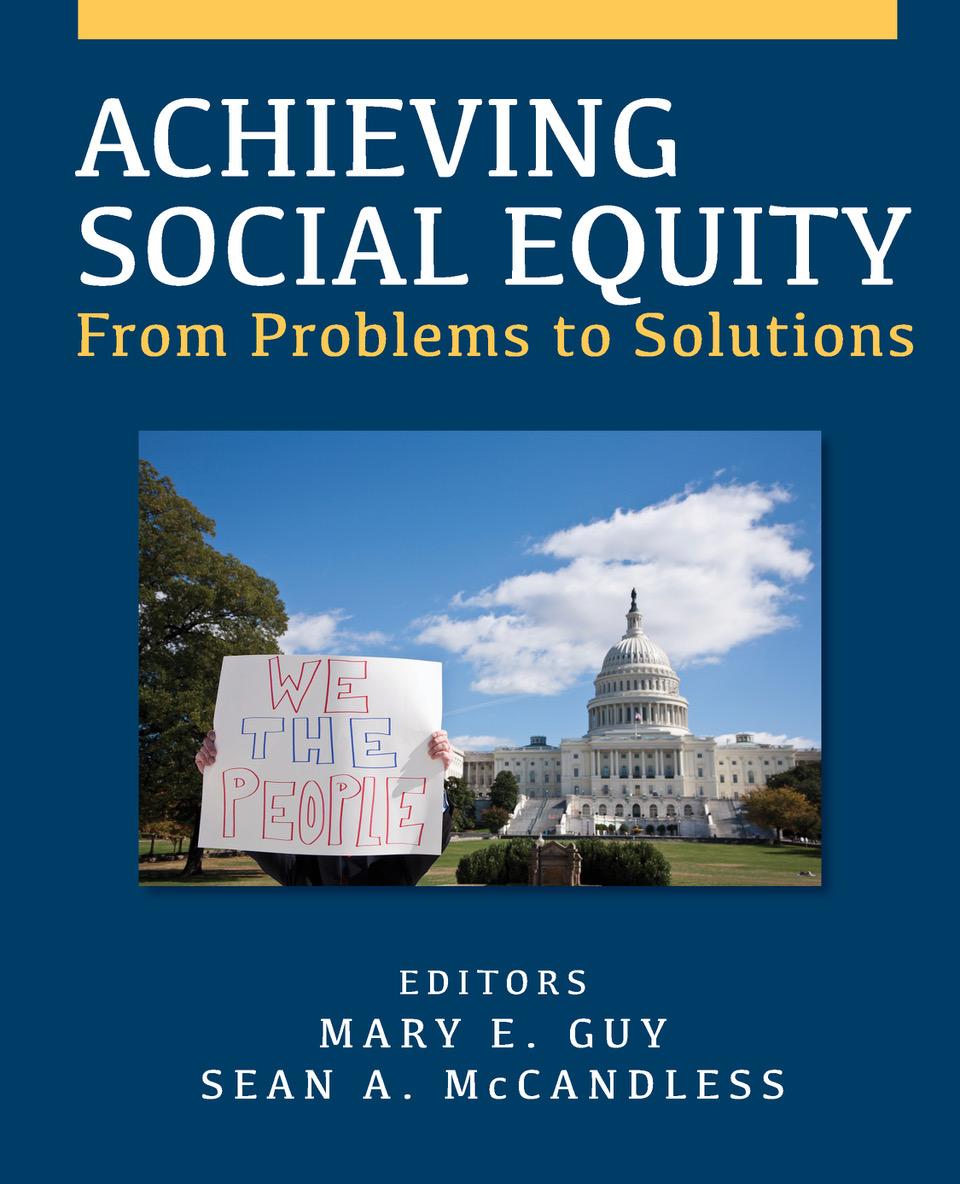
Achieving Social Equity
By Mary Guy and Sean McCandless
Social equity is an imperative of public administration. Using the most up-to-date information available, and with chapters written by rising experts in the field,
Achieving Social Equity offers a go-to guide on what administrators really need to know about social equity—definitions, major equity issues facing the field, future concerns and ways public service professionals can take responsibility for and achieve social equity. The goal of Achieving Social Equity is to sensitize public service professionals to the challenges that equity issues raise. The book goes beyond “admiring the problem” to suggesting implementable solutions. It is designed for use in introductory courses in public administration and public policy, capstone courses and courses that cover diversity and inclusion.
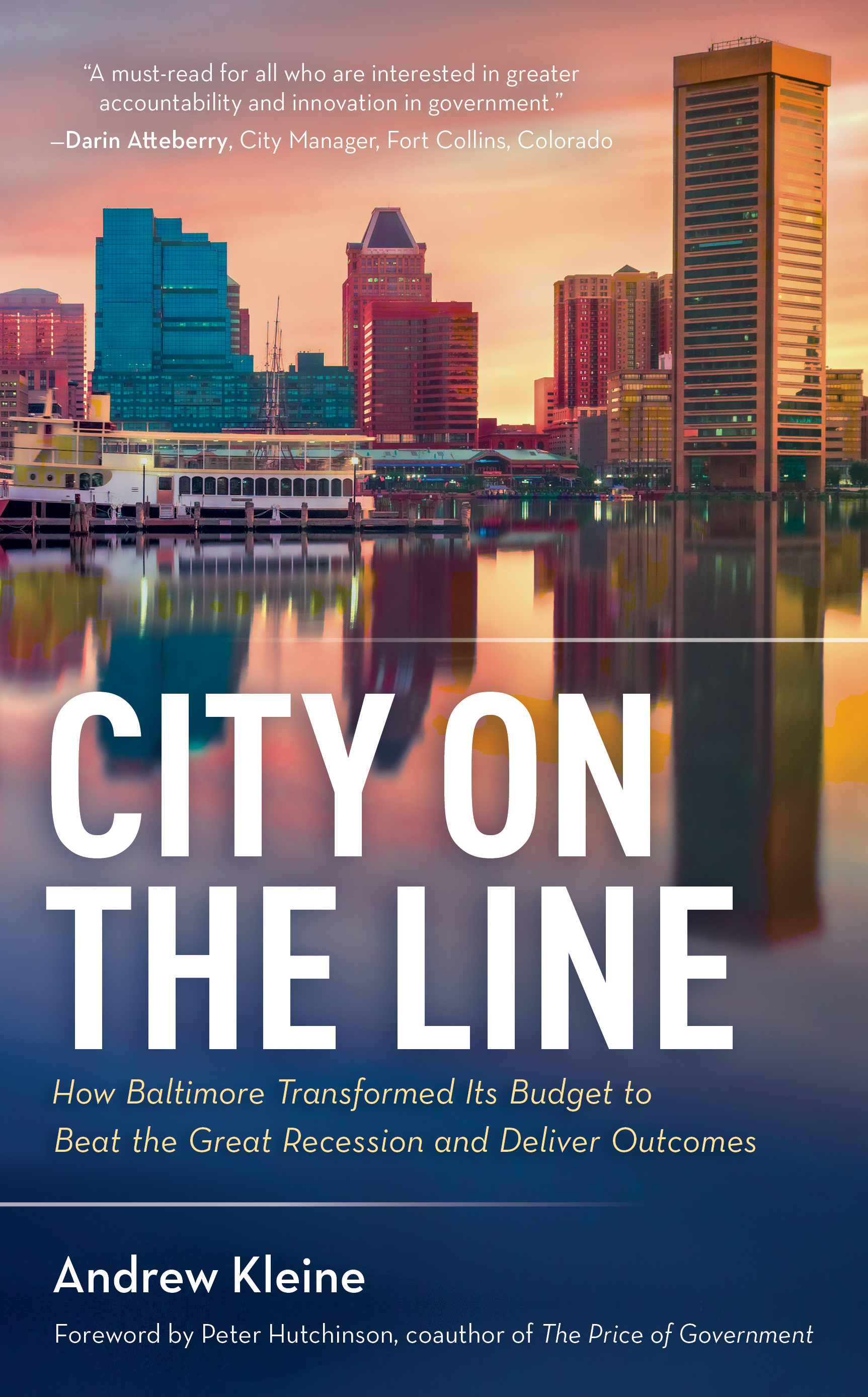
City on the Line
By Andrew Kleine
In
City on the Line, former Baltimore budget director Andrew Kleine asks why the way government does its most important job—deciding how to spend taxpayer dollars—hasn’t changed in hundreds of years. Parts memoir, manifesto and manual, this book tells the story of Baltimore’s radical departure from traditional line item budgeting to a focus on outcomes like better schools, safer streets and stronger neighborhoods—during one of the most tumultuous decades in the city’s history. Elected officials, executives and citizens alike will be equipped to transform budgets in their city, state or any other mission-driven organization. More readable than a typical professional title, this narrative is driven by stories of public servants who are working to deliver better outcomes in Baltimore including graphical features that provide context, humor, examples, tools and instructions; take-aways, questions and resources at the end of each chapter for use as assignments to a public administration or public policy class; and recommendations of other books to read about making government work better.
April 5, 3:30 p.m. – 4:30 p.m.
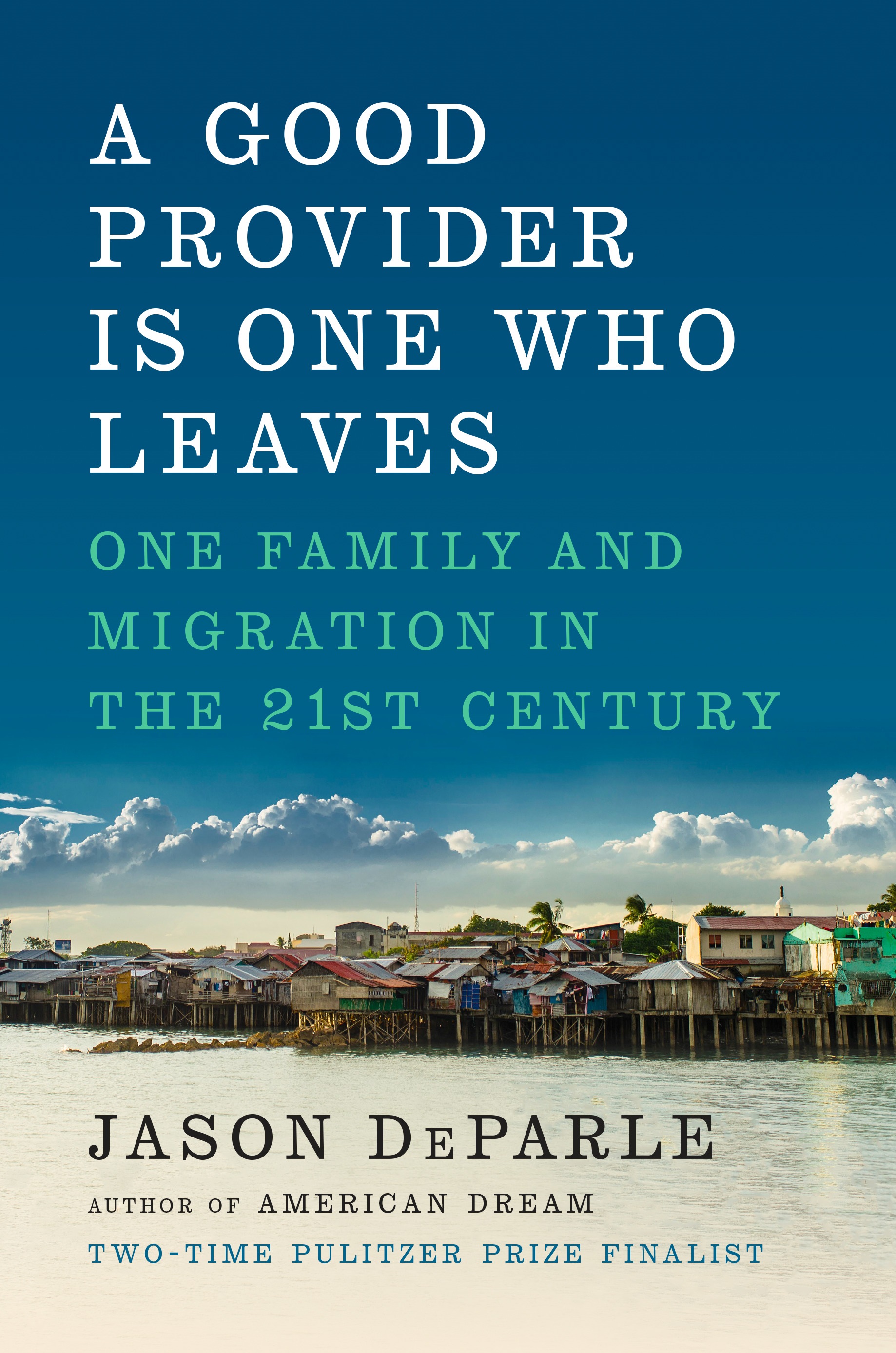
A Good Provider is One Who Leaves: One Family and Migration in the 21st Century
By Jason DeParle
In a work that gives new meaning to immersion journalism, Jason DeParle, a two-time Pulitzer Prize finalist and veteran New York Times reporter, has spent a remarkable 30 years following an extended family of Filipino immigrants from the slums of Manila to the suburbs of Houston. Through their multigenerational saga,
A Good Provider is One Who Leaves: One Family and Migration in the 21st Century tells the larger story of global migration, a force remaking economics, politics and culture across the world. As a young reporter in the 1980s, DeParle moved in with the family in a Manila shantytown and has tracked their migrations ever since—to Saudi Arabia and Abu Dhabi, as cruise ship workers and finally to Texas. At the heart of the story is an unlikely heroine, Rosalie Villanueva, whose sacrifices rescue the clan from abject poverty. A 15-year-old school girl when DeParle met her, she is now a 47-year-old nurse and mother of three Americanizing kids. While the politics of immigration are broken, DeParle shows that immigration itself remains an under-appreciated American success. Weaving narrative and analysis, DeParle reports on migration from places as far flung as Ireland, Cape Verde and Nepal, and traces its impact on events as disparate as Brexit and the election of Donald Trump. In the vast literature on immigration, DeParle’s book stands alone. It is a deeply humanized portrait of its costs and rewards.
Join us for this signing after you hear Jason tell his story from the plenary stage! He will provide this year's
Global Public Administration Plenary keynote on Sunday afternoon.
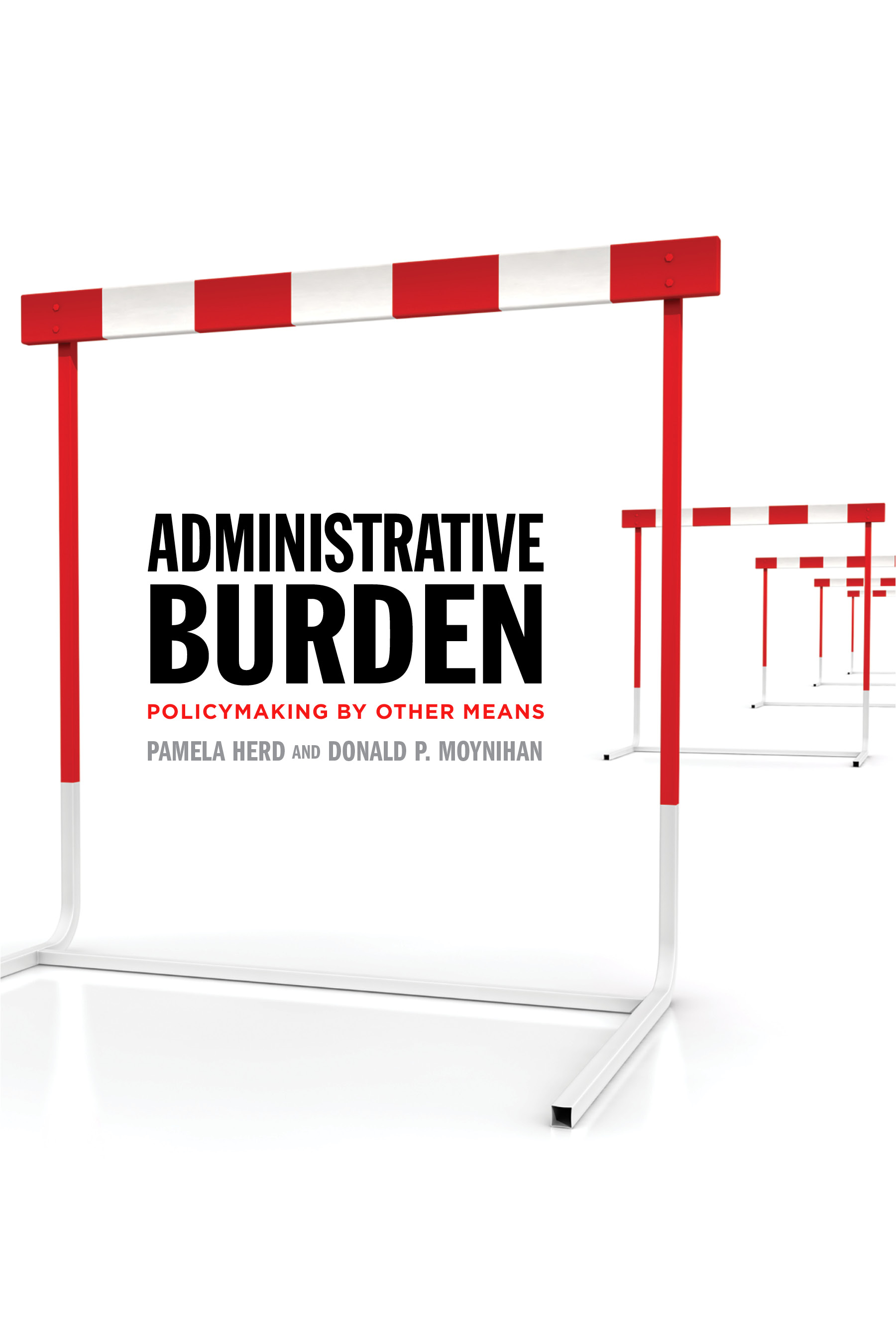
Administrative Burden
By Donald Moynihan and Pamela Herd
Bureaucracy, confusing paperwork and complex regulations—or what public policy scholars Pamela Herd and Donald Moynihan call administrative burdens—often introduce delay and frustration into our experiences with government agencies. In
Administrative Burden, Herd and Moynihan document that the administrative burdens citizens regularly encounter in their interactions with the state are not only unintended byproducts of governance, but also can be the result of deliberate policy choices. Because burdens affect people’s perceptions of government and often perpetuate long-standing inequalities, understanding why they exist and how they can be reduced is essential for maintaining a healthy public sector. Through in-depth case studies of federal programs and controversial legislation, the authors show that administrative burdens are the nuts-and-bolts of policy design as lawmakers often use them to limit access to rights or services they oppose. Further, these burdens disproportionately affect the disadvantaged, who lack the resources to deal with the financial and psychological costs of navigating these obstacles. Making more programs and public services operate efficiently requires adoption of a nonpartisan, evidence-based metric for determining when and how to institute administrative burdens, with a bias toward reducing them. By ensuring the public’s interaction with government is no more onerous than it need be, policymakers and administrators can reduce inequality, boost civic engagement and build an efficient state that works for all.
Join us for this signing prior to hearing from Don when he takes the stage on Monday afternoon to deliver this year's
Donald C. Stone Lecture. You won't want to miss this keynote!